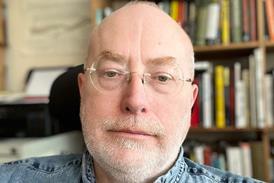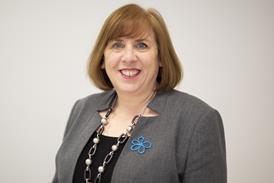- Royal college found children needing psychological therapy had “invasive treatment” at GOSH
- Referral restrictions caused “utter chaos” for other trusts
- College finds leadership has since improved
- Trust criticises royal college report for including “unsubstantiated” anecdotes
Children needing psychological therapy “underwent many years of invasive treatment” at a specialist trust after presenting with non-medical or “fabricated symptoms”, royal college investigators were told.
Great Ormond Street Hospital for Children Foundation Trust earlier this week published its response to a 2017 report by the Royal College of Paediatrics and Child Health into care in its gastroenterology division.
The work followed an earlier RCPCH report in 2015, which has never been published, which found “cause for concern” in the treatment of some children. The college produced the report at the trust’s request. While the RCPCH investigated, the number of procedures the division carried out was reduced by around half, which caused “utter chaos” for other trusts.
The 2015 report looked at allegations of:
- “over-investigation of some children”;
- “over-diagnosis of certain conditions without consistent criteria or thresholds”; and
- “concern about how patients are selected for research projects”.
The trust has said there was “no evidence” of any long term consequences for any of the children whose cases were reviewed.
The trust convened a panel to investigate 40 cases, which found “significant” issues. From January 2016, restrictions were made on referrals into the service. New referrals were seen by a multidisciplinary team including a mental health input for “patients with challenging presentations, where there may be a psychological cause to symptoms”.
Later that year, the trust invited the RCPCH back to review the trust’s progress.
The royal college team found several improvements following “changes to the management team and a major overhaul of governance, procedures, administration and safeguarding arrangements”.
The review, published in 2017, found: “Very good senior clinical and operational leadership, which needs to be sustained and embedded.”
However, it said: “The new approach has not been universally accepted by all gastroenterology consultants and some remained sceptical about the need for change.
“Some concerns were expressed that the trust and team had not yet fully learned from the consequences of the 2015 review, when further detailed case review work was required urgently to ensure all children were on appropriate care plans.”
The restriction on referrals to GOSH caused “utter chaos” for other hospitals, the investigators were told, “with no details about pathways and protocols [and] alternative specialist centres being overwhelmed and unable to offer shared care to district general hospital referrers”.
The RCPCH said during its visit, a joint letter was sent to the NHS England London’s specialised commissioning directorate from seven other trusts requesting urgent intervention to address long waiting lists at other centres.
It said the trusts complained there had been “no attempt by GOSH or commissioners over the 18 months of restrictions to proactively liaise with the specialist centres and plan the capacity required to manage the additional workload”.
The trust said this week it “was aware there [was] still room for improvement” but it was “disappointed that some anecdotal information has been included in the report, which is unsubstantiated and not adequately triangulated.”
A spokeswoman for GOSH said: “There was no evidence of any long-term consequences for any of the children involved in the review process.
“While it is important to reflect feelings that individuals may have about the service and the review process, it is also imperative that the progress the department has made over the past two years detailed in the review is not undermined by unverified information.”
A report submitted by interim medical director Andrew Long said: “We are confident that patients and families are already seeing the tangible benefits of improvements [the trust has made], with a significant reduction in the number of issues and complaints raised.
“We are aware that there is still room for further improvement, and we have carefully considered the RCPCH’s findings and recommendations to formulate a robust action plan, which will inform our strategy for our gastroenterology service.”
Vinod Diwaker resigned as medical director in December 2016. He was appointed in February 2015. David Hicks was interim medical director from January 2017 until Andrew Long took over this January. Dr Long will be replaced by Matthew Shaw substantively next week.
Before Dr Diwaker the medical director role was filled by Dr Barbara Buckley and Prof Martin Elliott, as a joint appointment.
Peter Steer took over as trust chief executive in January 2015, replacing Julian Nettel who had been interim chief executive for the previous year.
Jan Filochowski, the previous substantive chief executive, was appointed in August 2012. He announced his retirement a year later.
Downloads
Trust board agenda and papers
PDF, Size 10.9 mb
Source
Trust board papers and statement
Source date
March 2018


























1 Readers' comment